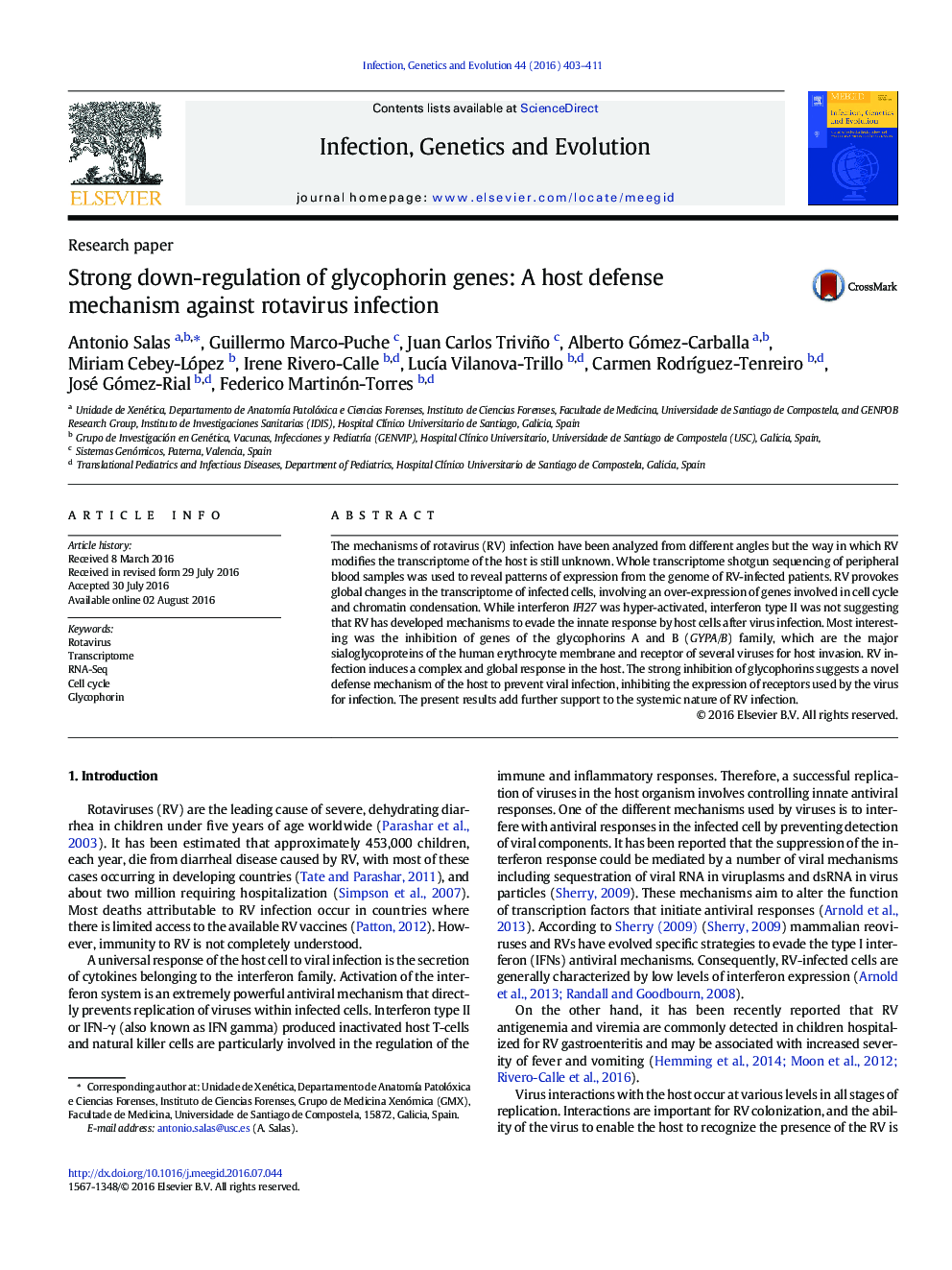| Article ID | Journal | Published Year | Pages | File Type |
|---|---|---|---|---|
| 5908196 | Infection, Genetics and Evolution | 2016 | 9 Pages |
Abstract
The mechanisms of rotavirus (RV) infection have been analyzed from different angles but the way in which RV modifies the transcriptome of the host is still unknown. Whole transcriptome shotgun sequencing of peripheral blood samples was used to reveal patterns of expression from the genome of RV-infected patients. RV provokes global changes in the transcriptome of infected cells, involving an over-expression of genes involved in cell cycle and chromatin condensation. While interferon IFI27 was hyper-activated, interferon type II was not suggesting that RV has developed mechanisms to evade the innate response by host cells after virus infection. Most interesting was the inhibition of genes of the glycophorins A and B (GYPA/B) family, which are the major sialoglycoproteins of the human erythrocyte membrane and receptor of several viruses for host invasion. RV infection induces a complex and global response in the host. The strong inhibition of glycophorins suggests a novel defense mechanism of the host to prevent viral infection, inhibiting the expression of receptors used by the virus for infection. The present results add further support to the systemic nature of RV infection.
Related Topics
Life Sciences
Agricultural and Biological Sciences
Ecology, Evolution, Behavior and Systematics
Authors
Antonio Salas, Guillermo Marco-Puche, Juan Carlos Triviño, Alberto Gómez-Carballa, Miriam Cebey-López, Irene Rivero-Calle, LucÃa Vilanova-Trillo, Carmen RodrÃguez-Tenreiro, José Gómez-Rial, Federico Martinón-Torres,
